Josh Hartnett takes on the role of Cooper, a caring father just trying to give his musically-obsessed daughter Riley the night of her dreams. Cooper secures tickets for the two of them to see pop sensation Lady Raven live in concert. But Cooper has a secret—he’s not just a regular dad. Unknown to Riley and the rest of his family, Cooper moonlights as a brutal serial killer known as The Butcher.
While most in the packed arena have only come for an exciting show, director M. Night Shyamalan has another scene unfolding. Unknown to the crowd, law enforcement has turned the concert into an elaborate trap, believing The Butcher will be there among the thousands in attendance. As the revelation that Cooper and Butcher are one in the same sinks in, the movie becomes an intense game of cat and mouse. Cooper must find a way to sneak past police surrounding the venue while also evading the watchful eye of a seasoned FBI profiler on his trail.
Taking cues from master of suspense Alfred Hitchcock, Shyamalan orchestrates a uniquely nail-biting setting for Cooper’s deadly secret to be exposed. With barely controlled chaos all around and Riley none the wiser, how long can Cooper keep up the charade of the happy family man before his true nature is finally outed? Hartnett navigates the role with an unnerving subtlety, the impending reveal of his dark double life adding an electricity beneath the surface of every innocuous interaction. As the concert unfurls, Trap proves you never know what secrets might be lurking among the screaming crowds.
Capturing the Energy of a Pop Concert
Night Shyamalan chose an electric setting for Trap by staging much of the action at a packed concert by pop megastar Lady Raven. With thousands chanting lyrics and cell phones glowing in the darkness, the scene is primed to energize a thriller. Unfortunately, some missed opportunities in the visual storytelling held back the movie from fully capturing this potential.
The concept of a massive arena packed tight with fans offers fertile ground for generating a sense of claustrophobia. With Cooper’s secret on the verge of exposure and law enforcement closing in, getting trapped in the swirling crowd could heighten tension. But too often, the cinematography focuses intently on the big screens broadcasting Raven’s performance. This distances the viewer instead of plunging them into the surging sea of concertgoers. We see the show rather than feel the palpable excitement swirling all around Cooper as he maneuvers.
Editing choices also dispel energy rather than building it. Quick cuts between different angles could have conveyed the unhinged atmosphere, but many scenes linger longer than the moment requires. When action does occur, it’s not always framed or paced in a way that makes the most of it. Cooper’s movements around the venue desperately needed a more dynamic visual handling to up the suspense.
As the pulsing pop tunes play, glimpses of kinetic visual language seem ready to surface. But they’re never fully embraced. More stylistic flair may have helped Shyamalan’s premise truly trap both Cooper and the audience members on the edge of their seats. While the concept presents ripe opportunities, the camerawork and editing unfortunately miss chances to inject Trap with the electrified sense of unpredictability coursing through the erupting crowd.
The Many Sides of Cooper
Josh Hartnett truly shines in Trap, turning in an unforgettable performance as the deceptive yet compelling Cooper. He imbues the character with an endearing sweetness in scenes alongside his daughter Riley, making their bond feel genuine. But Hartnett also hints at Cooper’s dark interior, flashing a sly smile or steely gaze to send chills.
It’s no easy feat to portray a serial killer who lives two entirely separate lives. Yet Hartnett navigates these dueling aspects of Cooper with nuance and precision. He finds moments of humor in Cooper’s attempt to appear like a “cool dad” without losing sight of the underlying menace. Even as Cooper’s horrifying secrets are revealed, Hartnett makes him a riveting and mysteriously alluring figure.
Saleka Shyamalan brings passion and charisma to the role of Lady Raven. Her strong vocal talents shine through the concert sequences. Her character also plays a more pivotal role later on, interacting with Cooper in layered scenes that heighten tension.
As Cooper’s daughter Riley, Ariel Donoghue imbues the character with youthful exuberance and emotion. Their relationship feels authentic, making Riley’s obliviousness to Cooper’s true nature all the more unsettling.
Alison Pill is a force as usual in her brief appearances as Cooper’s wife, Rachel. Her character raises intriguing possibilities that are left mostly unexplored.
While ensemble members like Hayley Mills deliver solid support, Trap could have dug deeper into the inner lives of its female roles like Riley and especially Rachel. More development of the psychological toll on Cooper’s unsuspecting family members may have strengthened the profound unease at the story’s core.
Overall, Trap benefits immensely from Hartnett’s gripping lead performance, which keeps viewers invested in Cooper’s escapades against improbable odds. His magnetic screen presence helps conceal some of the film’s narrative gaps.
A Story Straining Believability
The premise of Trap sets up a unique high-stakes situation as Cooper attends the concert unaware it’s been turned into a trap specifically for him. From the start, he displays quick thinking to gather information. But soon, the plot depends more and more on fortunate contrivances as Cooper miraculously slips past authorities at every turn.
We’re told the FBI aims to identify the butcher by interrogating thousands of attendees. In reality, hauling so many men for questioning in a tight timeframe makes their plan feel implausible. Cooper too easily infiltrates police meetings and swipes a key item. While it’s entertaining to see Cooper scheme, his constant luck strains how believable his escapes become.
When Cooper meets Lady Raven’s uncle in the crowded arena, it’s a major stretch that this chance encounter leads to a coveted backstage pass for his daughter. And why does Cooper then explicitly reveal his secret to Lady Raven backstage rather than quietly making an exit? It doesn’t line up with how cunning he seemed early on.
As Cooper’s actions grow more illogical, it lessens the thriller’s impact. We want a clever, multi-layered villain outmaneuvering authorities, not an unbelievable string of fortunate breaks. The story would have benefited from more realistic maneuvers showing Cooper leveraging his wits and manipulative skills.
Even character motivations become murky, like when Cooper casually endangers his daughter to pursue far-fetched escape plans. The plot requires contortions to keep him on the run within this setting, but losing sight of psychological grounding damages the chilling effect. When thrillers stretch plausibility this far, it’s harder to remain invested in the high stakes. With a tighter script, Trap could have delivered more satisfying thrills.
Weaving Thrills and Laughs in Hitchcockian Style
While Trap aspires to deliver intrigue akin to Hitchcock classics, it favors a lighter tone than pure suspense. The film finds an interesting balance, peppering humor throughout tense moments. Cooper’s slick but goofy maneuvers create some laughs amid life-or-death stakes.
Josh Hartnett brings a playful energy that alleviates potentially dark material. As a serial killer escorting his daughter, Cooper should unsettle, yet his charming antics make him weirdly fun to follow. This tonal blend works well for the concert setting too, where fans joyfully sing while danger lurks nearby.
By introducing levity, the movie avoids becoming too grim as it unveils Cooper’s monstrous secret. His frantic attempts elicited both tension and smiles. Though far-fetched at times, Shyamalan keeps things entertaining by playing Cooper’s escapes for humorous maximalism over gritty realism.
This approach feels befitting of the filmmaker’s style too; his works often operate in an enjoyable Twilight Zone-esque space between chills and thrills. Like Hitchcock, Trap aims to engage more than disturb, prioritizing having a good time over delivering grim provocations.
While not quite achieving the sophistication of genre masters it tries channeling, Trap shows Shyamalan can spin an intriguing mystery-thriller yarn when focusing on crafting an intriguing premise and balance of moods over narrative plausibility. At its best, the film invokes that delicious mixture of humor, intrigue, and suspense so classically Hitchcockian.
Lady Raven’s Lively Lyrics
Saleka Shyamalan infuses Trap with an energetic soundtrack. As Lady Raven, her songs immerse us in the concert setting, capturing the character’s style and the fan’s passion. Performed live on stage, Saleka brings her pop anthems alive through a strong voice that holds attention. Her melodies pump through the arena, giving Cooper’s dilemma an extra layer of dramatic irony as the oblivious crowd sings along.
Unfortunately, the movie lacks coordination between its technical elements at times. While Mukdeeprom’s cinematography captures the spectacle vividly, with sweeping shots that emphasize the concert’s scale, filming Lady Raven primarily on giant screens diffuses some of the intimacy. Likewise, Preiswerk’s editing focuses excessively on Cooper during instrumental portions, losing opportunities to ratchet up tension through crosscutting.
Production values are high, from the elaborate stadium design to period-appropriate costumes and props. Cooper’s suburban home also seems authentically lower-middle class. However, sporadic pacing hurts the intricacy of Cooper’s cons. Plot contrivances emerge too transparently instead of unfolding organically through a taut rhythm between scenes.
Overall, Shyamalan establishes a rich concert environment but fails to tighten technical coordination, diminishing momentum during Cooper’s crucial maneuvers. Saleka’s soundtrack stands out as a true artistic highlight, imbuing Trap with flashes of compelling musical drama, undercut by some lackluster structural mechanics.
Captivating Thriller with Untapped Potential
Overall, Trap proves to be an entertaining thriller that keeps viewers guessing, but one that could have been even better given its premises. Once past the musical showcase portions dragging pace, the intensity ratchets up as Cooper’s cons grow ever more risky. Hartnett truly anchors the film, imbuing a chilling psychopath with likable charm. His committed performance alone makes Trap worthwhile.
Yet one leaves feeling that Shyamalan’s ambitions outpaced his execution at points. Cooper navigates situations too conveniently instead of through cunning tenacity. With tighter focus on his cunning, the suspense could have resonated longer. And while the conclusion satisfies plot-wise, it feels a tad pat after building such an unsettling antagonist.
Still, Trap displays Shyamalan’s flair for imaginative premises. It aims to twist expectations and shine an unflinching light on the darkness lurking just beneath normality’s surface. When hitting its stride, it accomplishes that unnerving effect deftly. Within Shyamalan’s varied filmography, it occupies a pulpy, popcorn thriller niche with flourishes of his signature eeriness.
Ultimately, Trap entertains more than it frustrates, thanks to Hartnett’s virtuosity. While not a pinnacle, it shows Shyamalan’s ongoing drive to explore chilling scenarios from singular angles. Fans will find it an enjoyable, twisty addition to his ongoing exploration of human mystery and psychological murk.
The Review
Trap
In summary, Trap shows glimpses of thrilling suspense but falls short of its potential due to plot contrivances and uneven pacing. Hartnett's superb central performance as the chilling yet charismatic killer keeps viewers engaged throughout. While not a classic, Shyamalan fans should find it an entertaining addition with imaginative premises, even if the film could have been tighter and more unnerving.
PROS
- Engaging central performance by Josh Hartnett
- Twisty premise with intriguing psychological elements
- Imaginative scenarios that twist expectations
- Glimpses of thrilling suspense
CONS
- The plot relies on convenient contrivances over cunning
- Pacing drags during prolonged musical sequences
- Fails to tap the full potential of layered antagonists
- Conclusion feels a bit pat after building tension
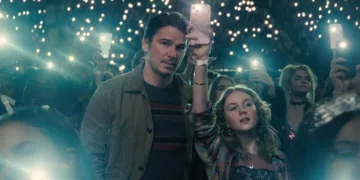
































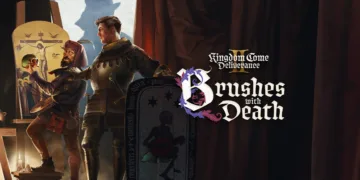







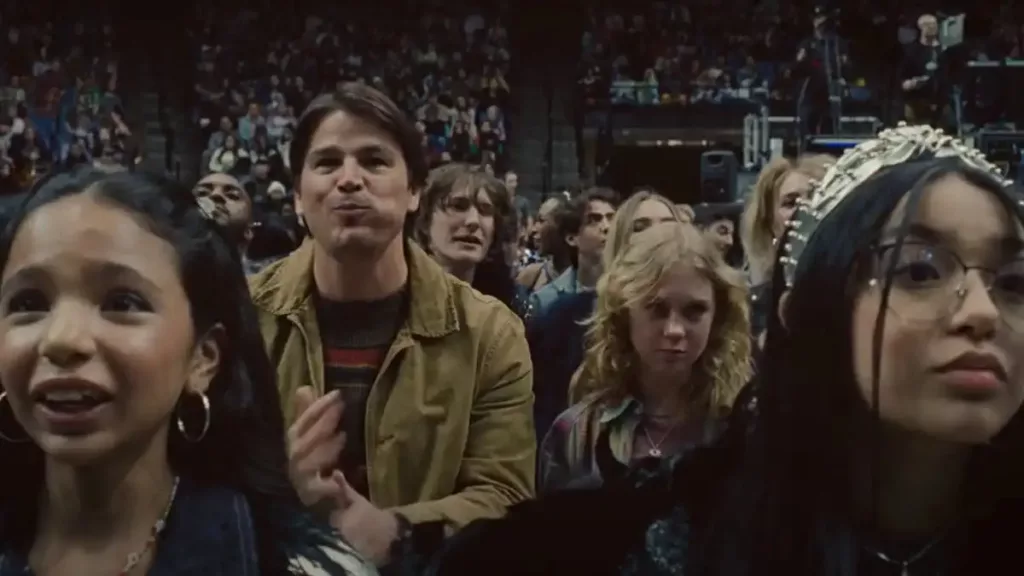
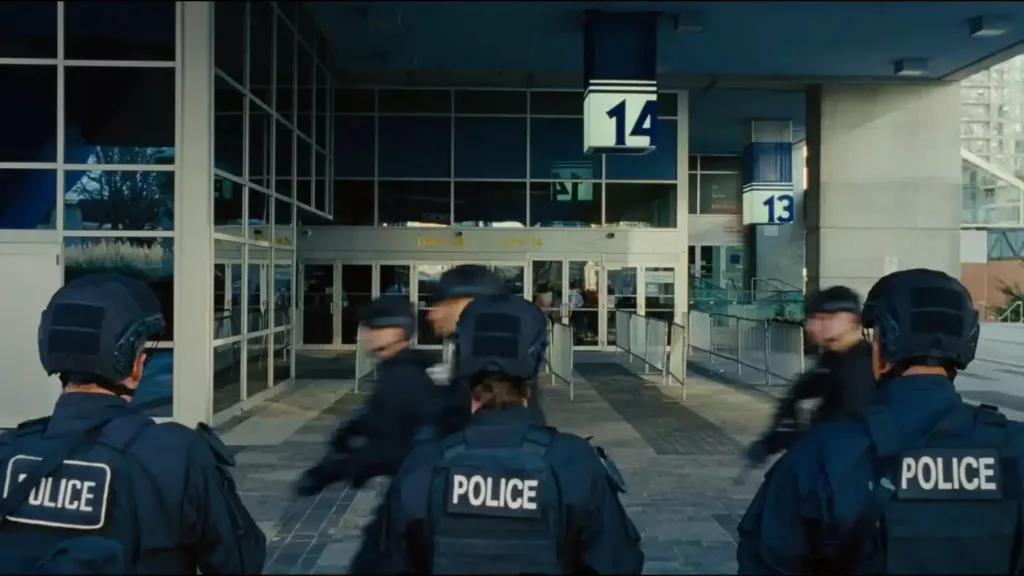
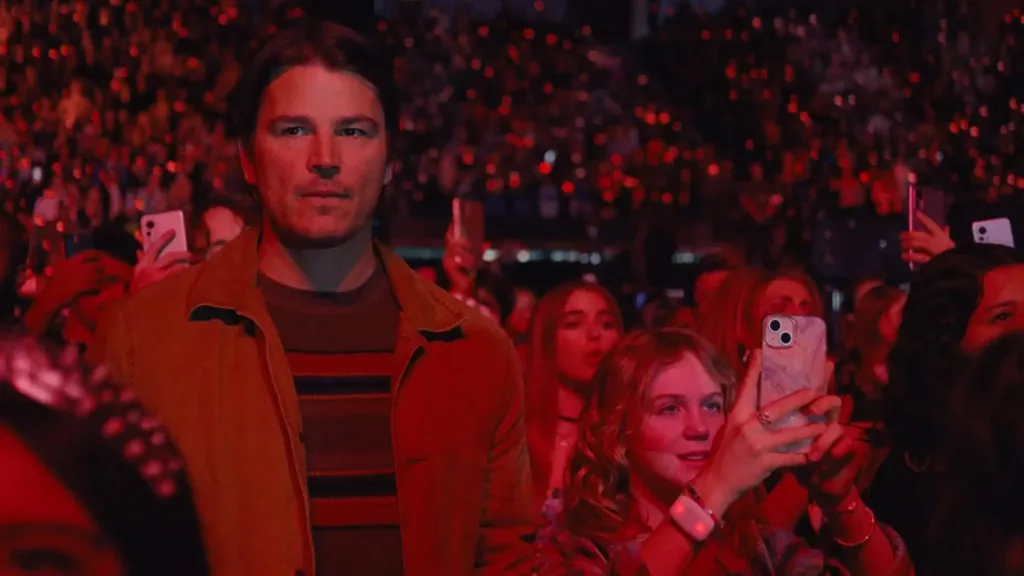
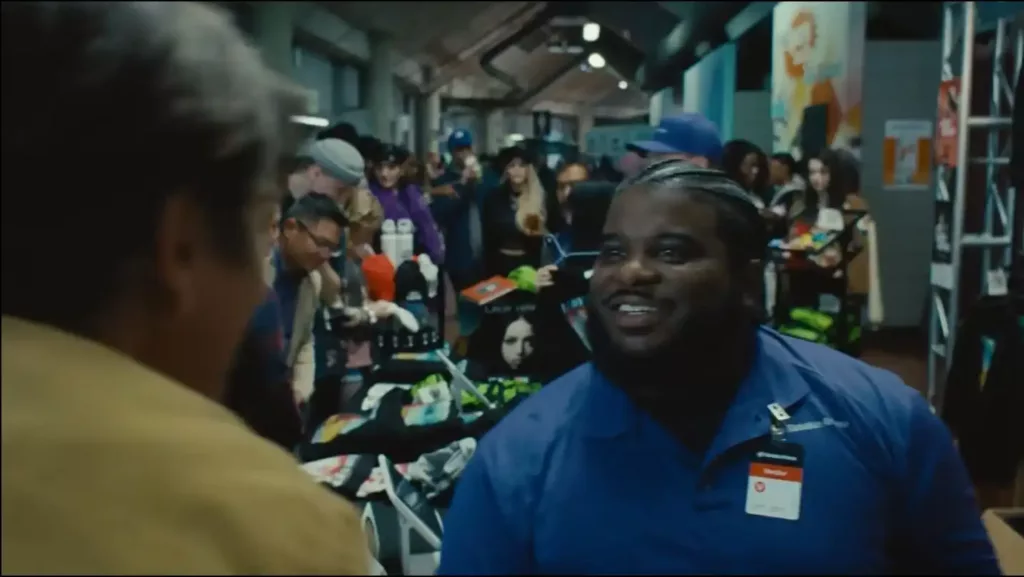
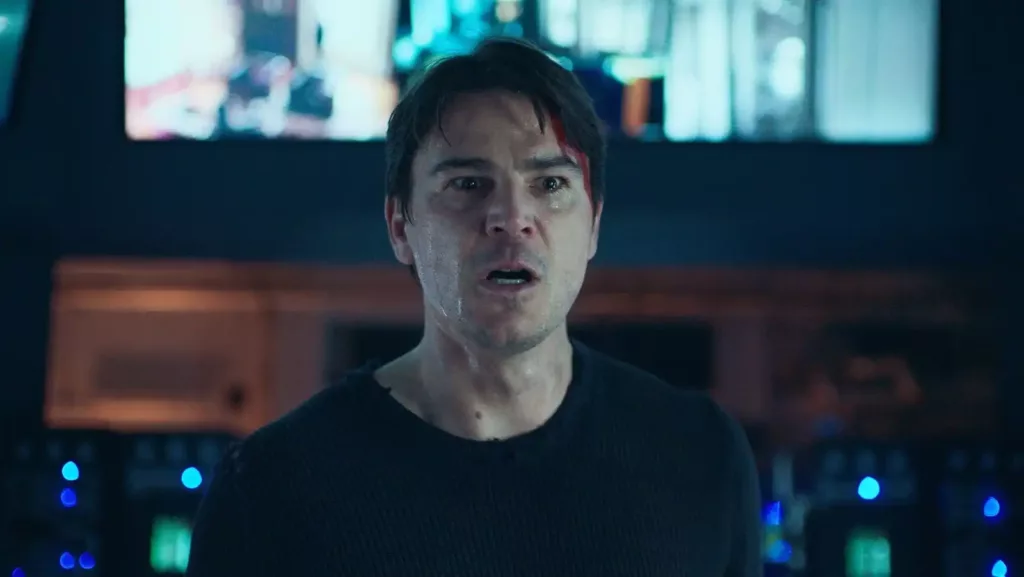








Discussion about this post